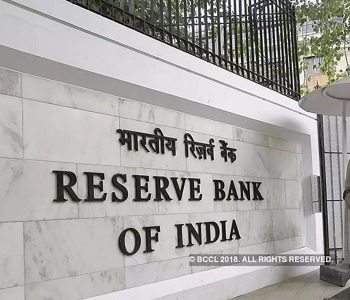Depositors at risk as lack of regulation plagues Nepal’s cooperative institutions

KATHMANDU: Depositors in Nepal are facing significant financial losses due to the government’s inadequate regulation of cooperative institutions. Reckless investments made by several cooperative operators have put billions of rupees worth of deposits at risk, highlighting the urgent need for effective regulation in the sector.
The Department of Cooperatives has identified problems in approximately 100 cooperatives, jeopardizing the savings of countless depositors. Although precise figures are unavailable, it is estimated that depositors have lost billions of rupees in these troubled cooperatives.
One distressing case involves Shiva Shikhar multi-purpose cooperative, which has failed to return Rs 14 billion to its depositors. The former president of the cooperative and head of the board of directors, Kedar Nath Sharma, was arrested in India in connection with the unpaid deposits.
Similarly, Dev Kumar, a director at Image Savings and Credit Cooperative, has gone into hiding after defrauding Nepali depositors of around Rs 2.5 billion. Oriental Cooperative Chairman Sudhir Basnet has also failed to refund deposits worth billions of rupees, leaving cooperative members in financial distress for years.
These instances represent just a fraction of the growing problem in the cooperative sector. The lack of strict regulatory oversight exacerbates the situation, despite the government declaring 12 cooperatives as problematic. Tola Raj Upadhyaya, the information officer for the Department of Cooperatives, admits that complaints have been received regarding problems in over 100 cooperatives.
Upadhyaya attributes the issues to a lack of adherence to established values and standards within the cooperatives. He further acknowledges the absence of adequate regulation by the governing body.
With 125 cooperative organizations falling under the federal level and others subordinate to provincial and local governments, regulatory efforts are not prioritized, leading to disorganization within the sector.
The government’s list of problematic cooperatives includes Standard Savings and Credit Cooperative, Pacific Savings and Investment Cooperative, Prabhu Savings and Credit Cooperative, Kohinoor Hill Savings and Credit Cooperative, Consumer Savings and Credit Cooperative, Kuber Savings and Credit Cooperative, Chartered Savings and Cooperative, Vegas Savings and Loan Cooperative, and Standard Multipurpose Cooperative.
Despite being labeled problematic in 2019, depositors of these cooperatives have yet to receive their money back. This further highlights the risk faced by depositors due to the ineffective regulation of these financial institutions.
Gopinath Mainali, former secretary of the Ministry of Land Management, Cooperatives, and Poverty Alleviation, emphasizes that the cooperative sector faces a crisis due to insufficient self-regulation and weak government oversight. Mainali asserts that the government must take action to address the escalating cases of fraud and restore trust in cooperatives.
Financial mismanagement, including the concentration of power in a single individual serving as chairman and manager across multiple cooperatives, has led to the crisis. Directors’ personal investments in real estate and other ventures have prioritized personal gain over the interests of cooperative members. Nepal has approximately 30,000 cooperative institutions, expected to generate an annual turnover of around Rs 900 billion.
Failure to rebuild trust within the cooperative sector could potentially trigger a financial crisis, warns Mainali, underscoring the need for cooperative campaigns and enhanced government vigilance.
Since the enactment of the Cooperative Act, 2074, and the Cooperative Regulations, 2075, responsibility for regulating, registering, and canceling cooperatives was assigned to the three levels of government.
However, this decentralization has diluted the regulatory framework. Instead of effectively managing and organizing cooperatives, chaos has prevailed under the guise of cooperative campaigns. The failure to maintain financial governance within these institutions has further compounded the problem.
Regulating agencies, including the Department of Cooperatives, have struggled to fulfill their responsibilities, with a lack of comprehensive financial information and balance sheets for the cooperatives. Consequently, the collapse of cooperatives often comes to the government’s attention only after depositors seek assistance.
Nepal currently boasts 30,879 cooperative institutions with a collective membership of 7,337,252. The total share capital of these cooperatives amounts to Rs 94 billion, with savings of Rs 477 billion and loans estimated at Rs 426 billion.
Numerous cooperatives face difficulties due to directors granting unsecured loans based on personal interests, investing in individual companies, and engaging in real estate transactions.
Despite a working group’s recommendation in 2012 to establish a second-level regulatory body for effective cooperative oversight, implementation has yet to occur.
Furthermore, although the Cooperative Act, 2074 empowers the Nepal Rastra Bank, the central bank, to regulate cooperatives engaging in transactions exceeding Rs 500 million, this authority has not been exercised.














Facebook Comment